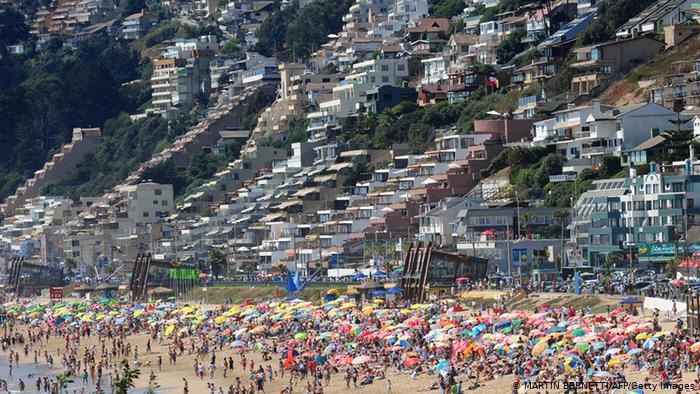RIO DE JANEIRO, BRAZIL – On Sunday, July 5th, Chilean President Sebastián Piñera announced a US$1.5 billion aid package to relieve the middle class, which has been severely impacted by the economic crisis resulting from the pandemic.
The measures, aimed at some 100,000 families, are focused almost exclusively on the provision or extension of credit under special state-guaranteed conditions. This aid has yet to be approved by Congress. “Chile is a mostly middle class country, which has progressed on the basis of its own merit, effort and work. The middle class knows this and is proud of its achievements. But it also deserves and needs assurances and opportunities for the future,” the President said when introducing the aid package.
Up until now, middle-class families had been excluded from the state aid granted to address the crisis caused by the coronavirus in Chile, which infected 295,532 people and caused the death of 6,308 people with a confirmed test and nearly 9,000 when considering “probable” deaths, according to the latest official report.
The package provides for the granting of a credit line up to US$3,200, split into four instalments, with a zero interest rate and a four-year repayment period, as well as the deferment of the payment of interest with a government guarantee.
In addition, it provides for the extension of a rent subsidy and loans to pay for higher education.

“The middle class is the silent victim of this crisis, but the solution cannot be to further indebt a middle class that is already over-indebted. The ideal solution would be direct transfers,” criticized Heraldo Muñoz, president of the opposition Party for Democracy (PPD).
The Emergency Family Income created for the crisis is intended for households with incomes up to 400,000 pesos (US$490), which represent 34 percent of Chilean households, sidelining the entire middle class, equivalent to virtually half of Chile’s 18 million population, with over-indebtedness levels now reaching 70 percent.
The aid package also includes the deferral of mortgage payments for families with reduced incomes for up to six months, a rental subsidy of 150,000 pesos (US$187) and an extension of the State-Sponsored Loans (CAE) so that youths can access higher education. “With this extension, over 130,000 new students will be able to access the benefit, which means that over 80 percent of higher education students will have state support,” Piñera explained.
Following a political consensus, Chile agreed to pay out up to US$12 billion – half of its hard currency reserves – to tackle the economic crisis caused by the coronavirus.
In March, measures targeting the most vulnerable, amounting to 4.7 percent of GDP, had already been passed. “We are experiencing very hard and difficult times, which have caused much hardship, suffering, anguish and uncertainty for millions of families,” said the President.
The partial suspension of business activities since mid-March led to a historic drop in gross domestic product (GDP) in April and May of 14.1 and 15.3 percent respectively and the loss of 1.5 million jobs. The Chilean Central Bank estimates a recession of up to 7.5 percent in 2020, while the Economic Commission for Latin America and the Caribbean (ECLAC) estimates that poverty could be as high as 13.7 percent.
“We must not only protect jobs and income during this emergency period … To achieve this goal, the only real solution is to get our economy back on track and create real security and opportunities for all,” added Piñera.

